10 Best Herbal Tinctures For Diarrhea

Herbal tinctures have been traditionally used to alleviate symptoms of diarrhea by leveraging the natural properties of various plants.
Commonly used herbs include ginger, chamomile, and peppermint, which are known for their anti-inflammatory and antispasmodic effects. These tinctures work by soothing the digestive tract, reducing intestinal cramps, and helping to regulate bowel movements. They are often preferred as a natural alternative to over-the-counter medications, especially for mild cases.
However, it is important to consult with a healthcare provider before use, particularly for individuals with underlying health conditions or those taking other medications.
Table of Contents
- 1. Ginger (Zingiber officinale)
- 2. Aloe vera (Aloe barbadensis)
- 3. Ceylon cinnamon (Cinnamomum verum)
- 4. Indian barberry (Berberis aristata)
- 5. Black pepper (Piper nigrum)
- 6. Fennel (Foeniculum vulgare)
- 7. Licorice (Glycyrrhiza glabra)
- 8. Turmeric (Curcuma longa)
- 9. Buckwheat (Plantago ovata)
- 10. Marshmallow (Althaea officinalis)
1. Ginger (Zingiber officinale)

Zingiber officinale, commonly known as ginger, has been widely used for centuries in traditional medicine to alleviate digestive issues, including diarrhea.
Ginger tinctures, which are concentrated liquid extracts of the root, are often used to reduce nausea and soothe the gastrointestinal tract. The active compounds in ginger, such as gingerol and shogaol, possess anti-inflammatory and antimicrobial properties that may help combat the causes of diarrhea. When taken in appropriate doses, ginger tinctures can help regulate bowel movements and reduce intestinal spasms.
However, it is important to consult a healthcare provider before using ginger tinctures, especially for prolonged periods or in combination with other medications.
2. Aloe vera (Aloe barbadensis)
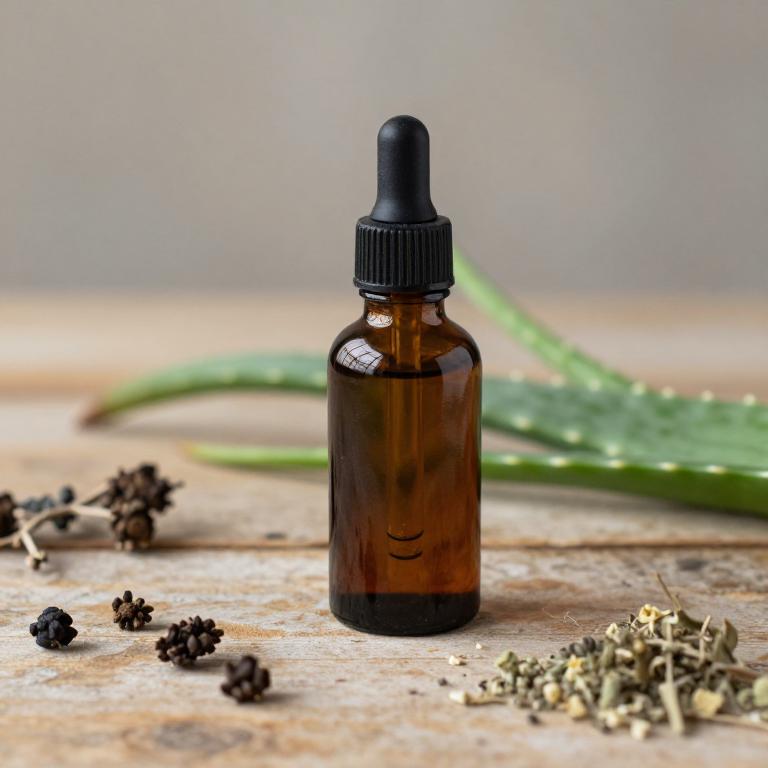
Aloe barbadensis, commonly known as aloe vera, has been traditionally used for its soothing and healing properties, and its herbal tinctures are sometimes employed to address digestive issues such as diarrhea.
These tinctures contain a variety of bioactive compounds, including polysaccharides, enzymes, and antioxidants, which may help reduce inflammation in the gastrointestinal tract. While some studies suggest that aloe vera can help regulate bowel movements and alleviate symptoms of diarrhea, its effectiveness can vary depending on the formulation and concentration of the active ingredients. It is important to note that aloe vera tinctures should be used with caution, as excessive consumption may lead to gastrointestinal discomfort or other adverse effects.
As with any herbal remedy, it is advisable to consult a healthcare professional before using aloe barbadensis tinctures for diarrhea, especially for individuals with existing medical conditions or those taking other medications.
3. Ceylon cinnamon (Cinnamomum verum)
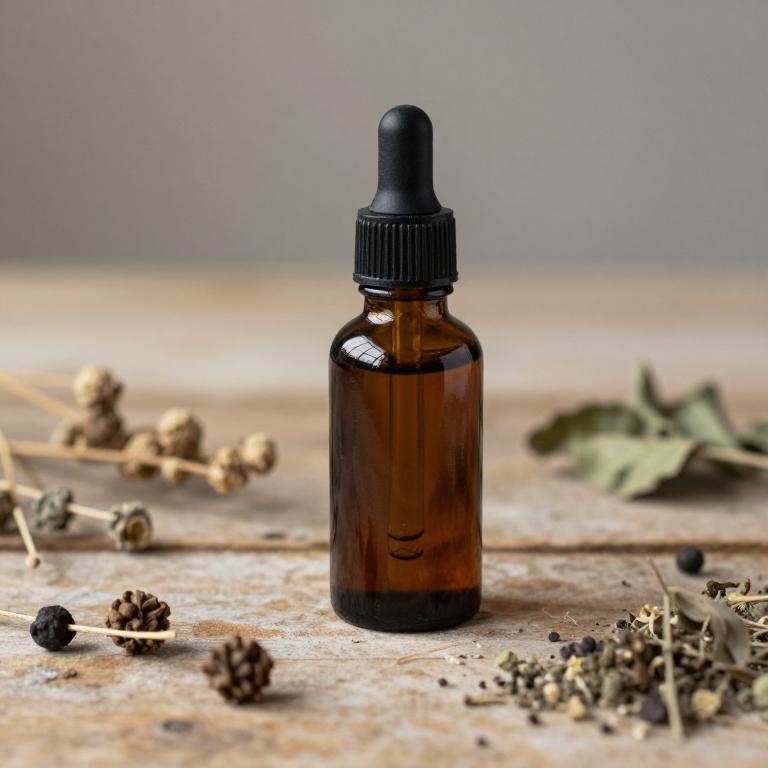
Cinnamomum verum, commonly known as true cinnamon, has been traditionally used in herbal medicine for its potential digestive benefits.
When prepared as a tincture, Cinnamomum verum may help alleviate symptoms of diarrhea by reducing intestinal inflammation and promoting gut health. The active compounds in cinnamon, such as cinnamic acid and eugenol, are believed to have antimicrobial and antispasmodic properties that support digestive function. However, it is important to consult a healthcare provider before using cinnamon tinctures, especially for prolonged periods or in combination with other medications.
While some studies suggest its efficacy, more research is needed to fully understand its role in treating diarrhea.
4. Indian barberry (Berberis aristata)
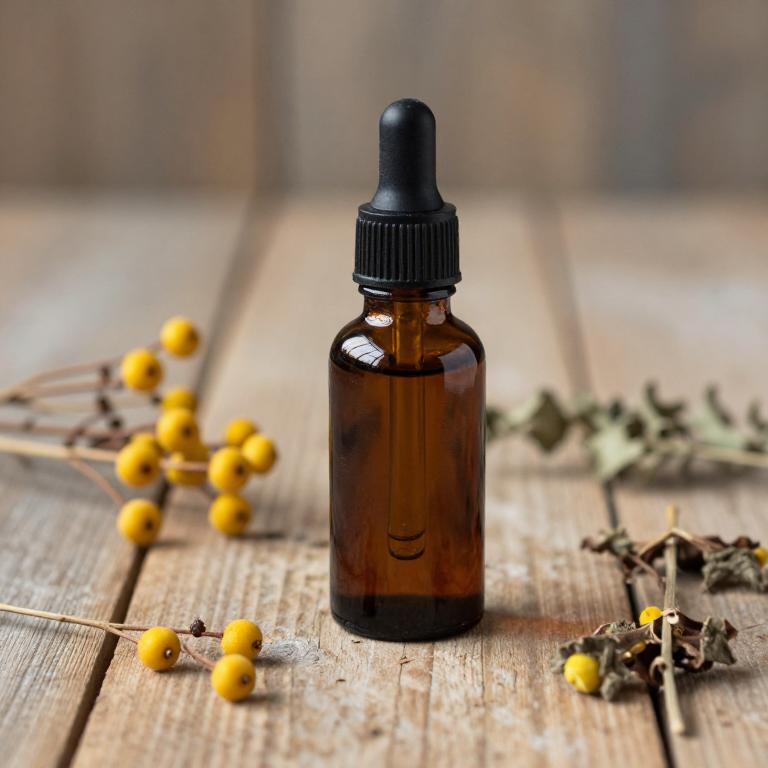
Berberis aristata, also known as the Indian barberry, contains an active compound called berberine, which has been traditionally used in Ayurvedic medicine for its antimicrobial and anti-inflammatory properties.
Herbal tinctures made from Berberis aristata are often used to treat digestive issues, including diarrhea, due to their ability to inhibit the growth of harmful gut pathogens. These tinctures work by reducing intestinal inflammation and improving gut motility, which can help alleviate symptoms of acute or chronic diarrhea. However, it is important to consult a healthcare professional before using berberine-based tinctures, as they may interact with certain medications or have side effects in some individuals.
Despite their potential benefits, Berberis aristata tinctures should not be used as a long-term solution without medical supervision.
5. Black pepper (Piper nigrum)
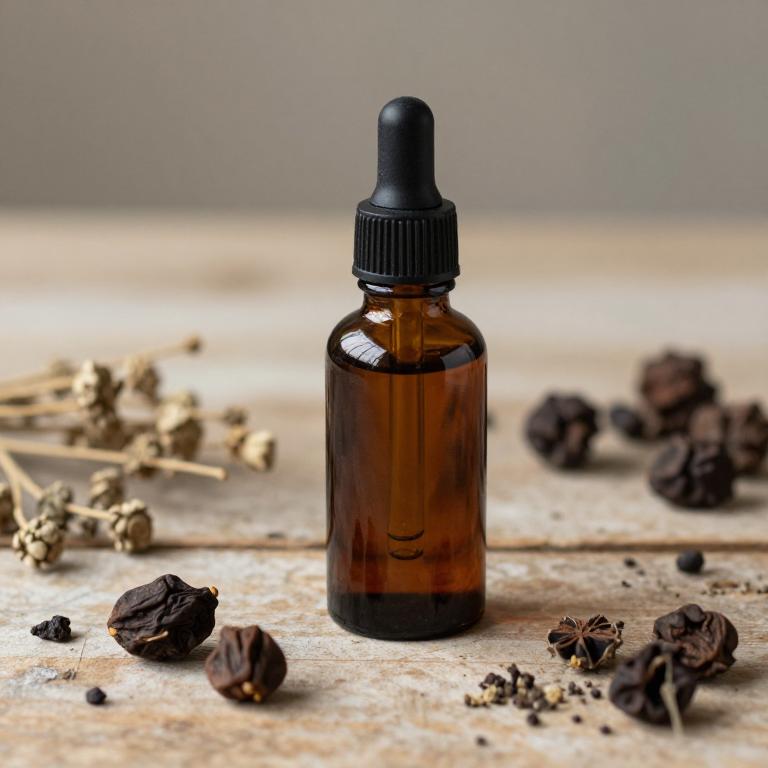
Piper nigrum, commonly known as black pepper, has been traditionally used in herbal medicine for its potential digestive benefits.
Black pepper extract, or piper nigrum tincture, contains piperine, a compound known for its ability to enhance digestion and stimulate the production of digestive enzymes. While there is limited scientific research specifically on its use for diarrhea, some traditional practices suggest that it may help alleviate gastrointestinal discomfort by improving gut motility. However, it is important to note that piper nigrum tinctures should not be used as a sole treatment for diarrhea, especially in severe cases, and should be consulted with a healthcare professional before use.
Overall, while black pepper tincture may offer some supportive benefits for digestive health, it is not a substitute for proper medical care when dealing with persistent or severe diarrhea.
6. Fennel (Foeniculum vulgare)

Foeniculum vulgare, commonly known as fennel, has been traditionally used in herbal medicine for its digestive benefits, including the treatment of diarrhea.
Fennel tinctures are made by soaking the dried seeds in alcohol, allowing the active compounds such as anethole and fenchone to be extracted. These compounds possess carminative and antispasmodic properties that help reduce intestinal cramping and ease digestive discomfort. When used in moderation, fennel tinctures can help regulate bowel movements and soothe the gastrointestinal tract.
However, it is important to consult a healthcare professional before using fennel tinctures, especially for prolonged periods or in individuals with known allergies or chronic health conditions.
7. Licorice (Glycyrrhiza glabra)

Glycyrrhiza glabra, commonly known as licorice root, has been traditionally used in herbal medicine for its potential soothing effects on the gastrointestinal tract.
Glycyrrhiza glabra herbal tinctures are often prepared by extracting the root in alcohol, which helps preserve its active compounds, such as glycyrrhizin and flavonoids. These tinctures are believed to reduce inflammation and irritation in the digestive system, making them a popular remedy for symptoms associated with diarrhea. However, due to the presence of glycyrrhizin, long-term use may lead to side effects like hypertension or potassium depletion, so it should be used under professional guidance.
Despite these considerations, glycyrrhiza glabra tinctures are frequently used as a complementary therapy to support digestive health during episodes of diarrhea.
8. Turmeric (Curcuma longa)

Curcuma longa, commonly known as turmeric, has been traditionally used in herbal medicine for its anti-inflammatory and antimicrobial properties.
Curcuma longa herbal tinctures are concentrated liquid extracts that capture the active compounds of the plant, primarily curcumin. These tinctures may help alleviate diarrhea by reducing intestinal inflammation and supporting digestive health. However, while some studies suggest potential benefits, more research is needed to confirm their efficacy for this specific condition.
It is important to consult a healthcare professional before using curcuma longa tinctures, especially for prolonged or severe cases of diarrhea.
9. Buckwheat (Plantago ovata)
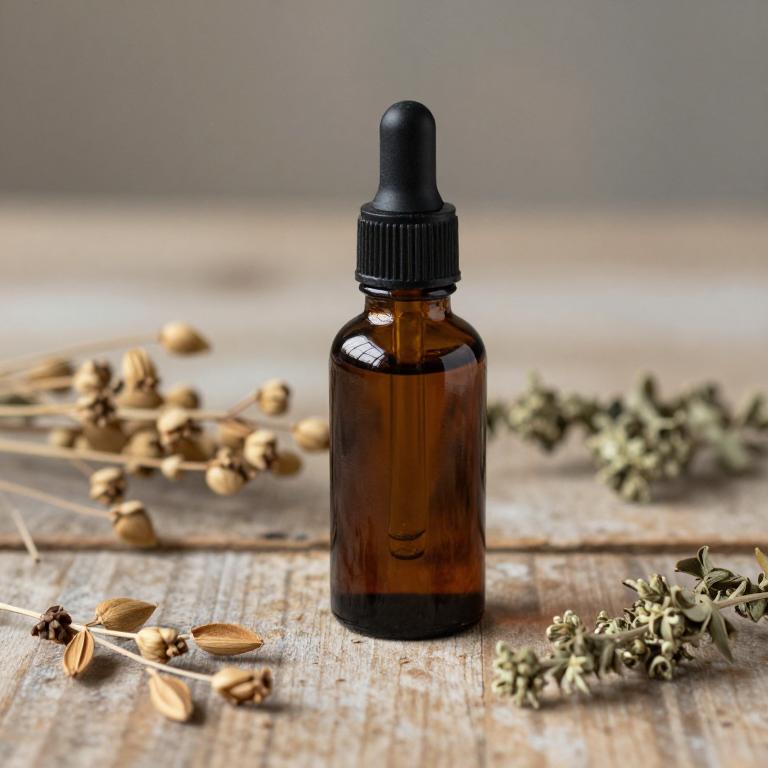
Plantago ovata, commonly known as psyllium husk, is often used in herbal tinctures to address digestive issues such as diarrhea.
These tinctures work by absorbing excess water in the intestines, which helps to firm up stools and reduce the frequency of bowel movements. The soluble fiber in psyllium husk promotes a healthy gut environment by supporting regular digestion and preventing dehydration. When taken as a herbal tincture, it is typically diluted in water or another liquid to avoid irritation to the throat or stomach.
While generally safe, it is advisable to consult a healthcare professional before using psyllium tinctures, especially for prolonged or severe cases of diarrhea.
10. Marshmallow (Althaea officinalis)
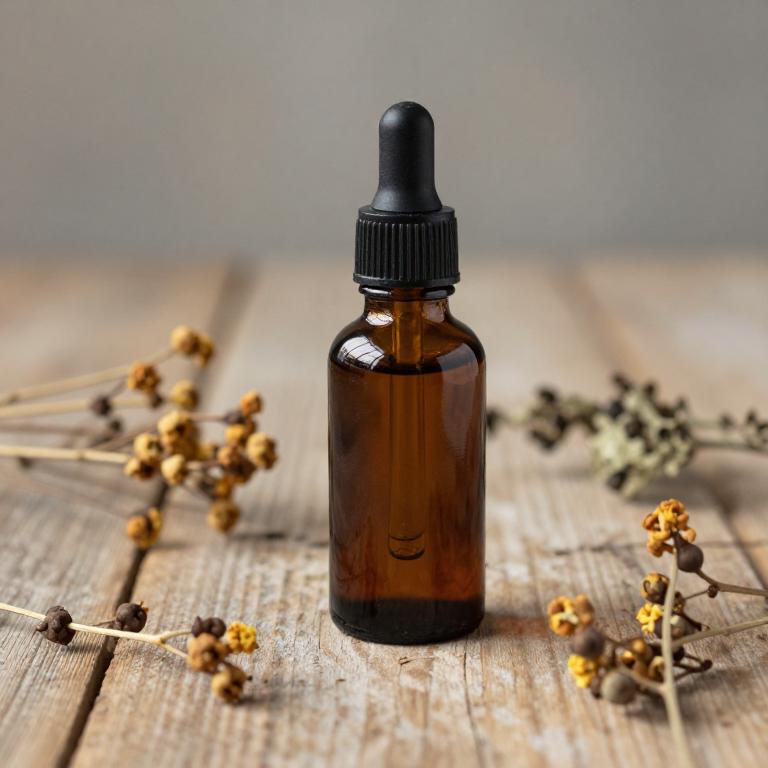
Althaea officinalis, commonly known as marshmallow, has been traditionally used in herbal medicine for its soothing properties, and its tinctures are often utilized to address digestive issues such as diarrhea.
The plant contains mucilage, a type of soluble fiber that coats the digestive tract, helping to reduce irritation and inflammation. When taken as a tincture, Althaea officinalis can help alleviate the symptoms of diarrhea by slowing down intestinal motility and providing a protective barrier. It is typically prepared by soaking the dried root or leaves in alcohol, allowing the active compounds to be extracted for medicinal use.
While generally considered safe, it is advisable to consult a healthcare provider before using marshmallow tinctures, especially for prolonged or severe cases of diarrhea.